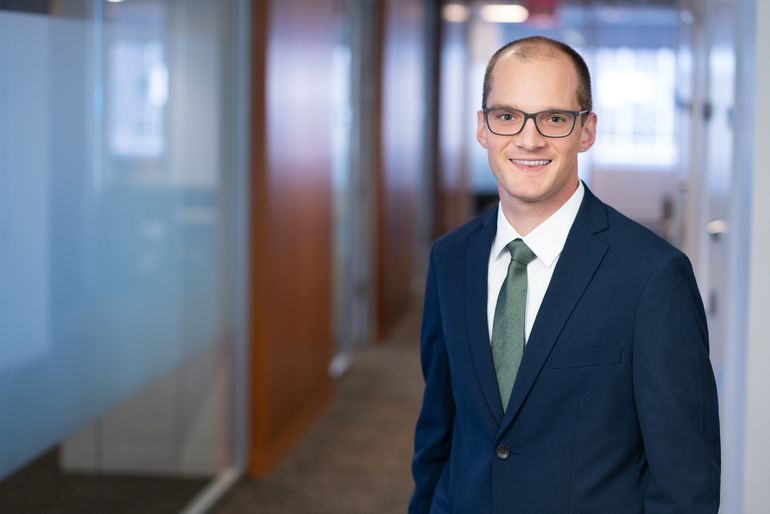
After 50-plus guilty pleas, dozens of prison sentences, and numerous courtroom victories, the U.S. Department of Justice (DOJ) is facing a major setback in its string of successful college admissions fraud cases. Weeks after the U.S. Court of Appeals for the First Circuit overturned the convictions of two parents involved in the “Varsity Blues” scandal, federal prosecutors in Boston announced on June 29, 2023, that they will drop most of the charges against Gamal Abdelaziz and John Wilson in light of the decision.
The court’s May 10, 2023, opinion found the government’s multiple bribery and fraud theories against the parents legally improper and its overarching conspiracy theory factually incorrect. The result: all bribery, wire fraud, and conspiracy convictions for both defendants were vacated.1
This decision has not only led to bad press and withdrawn charges. It struck a significant blow to several of the DOJ’s most frequently used charges: bribery, wire fraud, and conspiracy.
This alert discusses the Abdelaziz and Wilson case, analyzes the First Circuit’s reasoning for its decision, and provides several key takeaways.
Background2
Abdelaziz worked with Rick Singer, the mastermind of the Varsity Blues conspiracy, in 2017 and 2018 to help secure Abdelaziz’s daughter’s admission to the University of Southern California (USC) as a basketball player through the creation of a fake athletic profile. For Singer’s assistance, Abdelaziz sent Singer $300,000 to make a “private contribution” to USC. Singer told Abdelaziz that the money would go to a university account.
After Abdelaziz’s daughter enrolled at USC, Singer called Abdelaziz twice to discuss the payment. Unbeknownst to Abdelaziz, Singer was already working with the Federal Bureau of Investigation (FBI), which recorded both conversations. On the first call, Singer feigned anxiety about an Internal Revenue Service investigation into the $300,000 payment and told Abdelaziz he was calling so they could get their stories straight. On the second call, Abdelaziz learned that Singer’s USC contact was so impressed with their work that she wanted to reuse the basketball profile for “anybody who isn’t a real basketball player that’s a female.”
Wilson worked with Singer twice: first to help his son join USC’s water polo team in 2013 and then again in 2018 to help his twin daughters get into Harvard and Stanford. While Wilson’s son had played high school water polo, his coach testified that “he was not a player of the level ordinarily recruited by USC.” After one semester on the team, Wilson’s son quit playing water polo. As for Wilson’s daughters, Singer told him that “the sport ‘didn’t matter” and that Singer “would make them a sailor or something.” One daughter was admitted to Stanford as a member of the sailing team, and the other was admitted to Harvard University. When Wilson asked about what sport his daughter would play at Harvard, Singer said that the Harvard administrator “will figure it out” and that “it doesn’t matter the sport at this point.”
From there, the facts of Wilson’s case largely mirror Abdelaziz’s: Singer instructed Wilson to provide wires to Singer’s foundation so that Singer could pass along payments to his contacts at each university’s athletic department. Singer and Wilson spoke on the phone numerous times, and the FBI recorded many of these calls.
Abdelaziz and Wilson were each charged with conspiracy to commit federal programs bribery, and mail and wire fraud. The government’s main wire fraud theory was that the payments to university athletic departments, made through Singer, constituted bribes that violated each university’s right to its employees’ honest services. The conspiracy charge alleged that the defendants engaged in an overarching conspiracy with Singer, his staff, university insiders, and other parents to defraud multiple universities. Abdelaziz and Wilson were tried together, found guilty, and sentenced to 13 and 15 months in prison, respectively.
On appeal, the defendants argued that their payments were not illegal under either the federal programs bribery statute, 18 U.S.C. § 666, or the governing honest services wire fraud U.S. Supreme Court case, United States v. Skilling,3 and that the government’s conspiracy charge was flawed because they were not involved with any other parents who worked with Singer.
Federal Programs Bribery
The federal programs bribery statute, 18 U.S.C. § 666, prohibits “corruptly” giving or offering to give “anything of value to any person” with an intent to influence an agent of a local government or an organization that receives federal funding.4 The defendants argued that § 666 does not apply when the alleged bribe money is intended to be paid to the allegedly betrayed party (e.g., the university) rather than to the betrayer (e.g., the athletic department official).
The First Circuit rejected the defendants’ argument and held that it did not matter whom the bribe was paid to.5 The court adhered to the plain language of § 666, which encompasses payments “to any person,” without exceptions. It also dismissed the defendants’ concerns that such an interpretation would leave § 666 limitless; it cited the modest monetary thresholds in the statute—the bribe must be worth at least $5,000 and the organization must receive at least $10,000 in annual federal funding—and the fact that the payment must be made “corruptly.”
Despite finding that the payments constituted bribes under § 666, the court ultimately vacated the federal programs bribery convictions for evidentiary reasons, as discussed below.
Honest Services Wire Fraud
Congress has defined wire fraud to include schemes “to deprive another of the intangible right of honest services.” 18 U.S.C. § 1346. The Supreme Court in Skilling installed guardrails around honest services prosecutions by limiting the statute to “paradigmatic cases of bribes and kickbacks” that had appeared in earlier cases under the wire fraud statute.6 The defendants’ argument here was again based on the unique arrangement of the alleged bribe payments: “their payments to the universities, the parties whose interests were purportedly betrayed by their agents, cannot constitute bribes under Skilling’s interpretation of § 1346.”7 The government countered that a scheme qualifying as federal programs bribery should also qualify as bribery under Skilling, and it relied on the Supreme Court’s statement in Skilling that the honest services wire fraud statute drew “not only from the … case law, but also from federal statutes proscribing” similar crimes—specifically the federal programs bribery statute.8
The First Circuit, admitting that the question was “a close one,” sided with the defendants. The court thoroughly explained how earlier definitions of bribery from various sources did “not support the conclusion that payments to the purportedly betrayed party” could support a bribery conviction.9 For example, the court referenced Black’s Law Dictionary’s definition of “bribery”—“[t]he corrupt payment, receipt, or solicitation of a private favor for official action”—and concluded that the government’s theory was “at best a stretch.”10 Furthermore, the government could not point to any earlier bribery case where the betrayed party was also the recipient of the bribe. The court explained that “Skilling embodies a narrower understanding of the meaning of ‘bribery’ for purposes of honest services fraud that cuts against concluding that the conduct involved here, which does not fall [within the precedent],’ is a ‘bribe’ in the sense meant by Skilling.”11
It also reasoned that honest services wire fraud did not encompass all the same conduct as the federal programs bribery statute, positing that the government’s theory that the two statutes were encompassed within one another “threatened to render [the federal programs statute] superfluous.”12
The court held that the defendants’ actions in this case did not fit within the language of Skilling and that, even though their “conduct [was] not at all desirable,” it was insufficient to support an honest services fraud conviction.
Traditional Wire Fraud
In addition to its honest services wire fraud theory, prosecutors also charged both defendants with committing traditional wire fraud through a scheme to defraud the universities of admissions’ seats by arguing that the seats were property. As we discussed in a recent client alert, prosecutors have taken increasingly expansive views on what counts as “property” under the wire fraud statute, which criminalizes “scheme[s] or artifice[s] to defraud, or for obtaining money or property by means of false or fraudulent pretenses, representations, or promises.” 18 U.S.C. § 1343.
The court rejected this theory too, holding that the government failed to adequately define the property interest and that its “highly general, abstract terms” left the court with “no firm basis on which to assess whether the admissions slots at issue” were actually property.13 And while the court made clear that its holding was limited, “recogniz[ing] that our analysis leaves considerable uncertainty as to how district courts should apply the mail and wire fraud statutes’ property requirement,” it was clear that vacating the convictions was the right decision. The court explained that it had “sound reasons to be prudent and cautious about criminalizing conduct, even unethical conduct, in this complicated area affecting so many students and parents.”14
Conspiracy
The defendants attacked their conspiracy conviction by arguing that they were not part of an overarching conspiracy with the other parents. Instead, they argued that both of them had joined Singer in a “narrower conspiracy” with the sole goal of gaining admission for their own children.15 They argued that the gulf between the overarching and narrow conspiracies, or “variance,” led to the district court admitting evidence of other charged parents’ criminal intent to prove the overarching conspiracy against these two defendants. The defendants claimed that this evidence improperly prejudiced the jury and was reversible error.
The First Circuit was tasked with evaluating which conspiracy was legally and factually accurate and, if it agreed with the defendants, whether that variance constituted harmless error. It held that the defendants were not part of an overarching conspiracy and that they were prejudiced by the evidence about the overarching conspiracy. The court’s analysis focused on two key factors:
- Evidence of a Common Goal: The court analyzed whether “the defendants shared a common goal with the other alleged participants in the broader charged conspiracy,” or if, instead, each was pursuing “an end in itself, separate from all others.”16 Separate goals tend to indicate that the defendants are not in an overarching conspiracy.
- The court found that the Varsity Blues case was akin to a hub-and-spoke conspiracy, where each parent was connected to the others only through Rick Singer, the “hub.” But the critical question the court answered was “whether the nature of the alleged scheme is such that it would be reasonable to infer that any parents who sought the assistance of the core group shared a goal of getting children other than their own into any university just because they sought such assistance for their own children.”17
- The court found that the nature of the scheme failed to support that inference. Specifically, the court analogized each parent’s interaction with Singer to a consumer purchasing any other commercial service. It concluded that, typically, there is no common goal between buyers and sellers just because they transact with one another. The court also reasoned that there was some evidence that the parents were competitors against one another for admissions slots, which also cuts against a conclusion that there was a common goal.
- Interdependence: To determine whether the defendant parents had conspired with the other parents, the court analyzed whether the parents were acting interdependently. Specifically, the court asked whether there was a “tacit understanding” between the defendants and the other parents or whether they were “indifferent to the purposes of others in the enterprise.”18
- The court held that the government’s theory, that the “nature of the scheme” showed interdependence, was insufficient. The court also concluded that the defendants’ awareness of the larger scheme and referral of others to Singer were not evidence of interdependence.
- Both defendants were solely focused on working with Singer to secure admission for their children, and their children only. This indicated a lack of interdependence.
From these two factors, the court concluded that there was “insufficient evidence from which a rational jury could find beyond a reasonable doubt that the defendants joined the broader conspiracy charged in the indictment.”19
The defendants argued that the prejudice arose from “transference of guilt,” also known as evidentiary spillover, which occurred when the evidence of other parents’ criminal intent and bad actions were presented at trial. They argued the extraneous evidence misled the jury.20 The court agreed.
It explained that “the government introduced powerful evidence of culpable intent on the part of other parents that presented a pervasive risk of prejudicing the jury’s assessment of each defendant’s own intent” and held that this evidence created an “unacceptable risk that the jury in this case may have imputed other parents’ culpable mental states to the defendants.”21 The court agreed that the evidentiary spillover resulted in a prejudicial effect on the defendants’ trials. Both conspiracy convictions were vacated. The court similarly found that evidence from other parents’ schemes had tainted the jury’s determination as to whether the defendants here acted “corruptly” under the federal programs bribery statute, so it vacated those convictions as well.
Key Takeaways
This decision raises many questions. For the other parents involved in Varsity Blues, especially those who pled guilty: what about my case? Will the government drop my charges too? For the DOJ, what are the actual contours of private sector honest services fraud and the federal bribery statutes? For practitioners, how will the First Circuit’s decision apply to circumstances outside the context of the Varsity Blues scandal?
When it comes to honest services fraud, the decision highlights the fact that the honest services fraud statute covers only fact patterns that constitute the “core” of bribery and kickbacks under Skilling, regardless of whether a fact pattern qualifies as bribe or kickback under any other federal law. It also shows that defendants can successfully challenge wire fraud charges that rely on unconventional or atypical forms of property.
The First Circuit’s conspiracy-related holdings emphasize the importance of properly articulating the scope of a conspiracy when preparing for trial, as it has a material impact on what evidence is admissible and what arguments can be made.
As it relates to federal programs bribery, the First Circuit’s interpretation of the statute may generate some concern for individuals and entities who transact with government agencies and federally funded organizations. Its interpretation of a bribe disregards the payment’s recipient and leaves the focus on whether the payment was “corrupt.” For example, in a hypothetical bidding process to provide the IT services for a city, if a company induces a municipal procurement officer to purchase its services by offering to give the city an extra $6,000 worth of cloud storage, that might ostensibly fall within 18 U.S.C.§ 666—if it was done “corruptly.” Companies may find it difficult to screen for such potential bribes, since it is easier to ascertain a transaction’s counterparty than a transaction’s motivation. We will monitor these developments, including whether other circuits adopt the First Circuit’s broad interpretation of § 666 and whether federal authorities elect to pursue cases involving similar types of potential bribes.
If you have any question about these decisions or how they may affect you, do not hesitate to reach out to a member of the firm’s white collar crime practice.
[1] Wilson’s conviction for filing a false tax return under 26 U.S.C. § 7206(1) was affirmed.
[2] United States v. Abdelaziz, — F.4th —, 2023 WL 3335870, at *2–9 (1st Cir. May 10, 2023).
[3] United States v. Skilling, 561 U.S. 358 (2010)
[4] 18 U.S.C. § 666(a)(2), (b).
[5] Abdelaziz, — F.4th —, 2023 WL 3335870, at *10–14.
[6] Skilling v. United States, 561 U. S. 358, 411 (2010).
[7] Abdelaziz, — F.4th —, 2023 WL 3335870, at *16.
[9] Id. at *16–17 (stating that no “statutes in effect during the pre-McNally period show that a payment to the purportedly betrayed party would have been considered a ‘bribe’”).
[10] Id. at *17 (quoting Black's Law Dictionary (11th ed. 2019) (emphasis in original)).
[11] Id. (quoting Skilling, 561 U.S. at 404) (cleaned up).
[16] Id. at *28 (quoting Blumenthal v. United States, 332 U.S. 539 (1947)).
- Privacy Policy
- Terms of Use
- Accessibility




